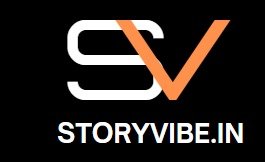
Quantum computing is no longer the realm of science fiction or highly specialized research labs. It’s a rapidly advancing field with the potential to revolutionize industries, solve previously unsolvable problems, and unlock new possibilities in computing. This guide aims to simplify quantum computing concepts for beginners, providing an accessible introduction without the need for advanced degrees.
Table of Contents
1. What is Quantum Computing?
At its core, quantum computing is a revolutionary approach to computation based on the principles of quantum mechanics, the fundamental theory that explains the behavior of particles at the atomic and subatomic levels.
The Quantum Difference
Traditional computers, such as laptops and smartphones, operate using binary bits, which can either be in the state of 0 or 1. Quantum computers, on the other hand, utilize qubits (quantum bits). Qubits can represent 0, 1, or any quantum superposition of these states, enabling quantum computers to perform many calculations simultaneously.
Why Does Quantum Computing Matter?
Quantum computing offers the potential to:
- Solve problems that are currently intractable for classical computers, such as modeling complex molecules for drug discovery.
- Optimize complex systems, such as financial markets or logistics networks.
- Enhance artificial intelligence by enabling faster and more efficient algorithms.
2. How Quantum Computers Differ from Classical Computers
Classical Computing Basics
Classical computers rely on a deterministic approach to processing information. Bits are processed sequentially through logic gates, and their power increases linearly with the addition of more bits.
Quantum Computing Advantage
Quantum computers leverage the probabilistic nature of quantum mechanics, allowing them to explore multiple states at once. For example:
- A classical computer might take years to factorize a large number used in encryption, while a quantum computer using Shor’s Algorithm could achieve this in minutes.
- Quantum systems scale exponentially, meaning that a small increase in the number of qubits can lead to a massive increase in computational power.
Real-Life Analogy
Think of a classical computer as reading one page of a book at a time, while a quantum computer can read all the pages simultaneously and find connections between them instantly.
3. Key Concepts in Quantum Computing
Qubits: The Building Blocks of Quantum Computing
Qubits are the quantum counterpart of classical bits. Physically, they are implemented using technologies like:
- Superconducting Circuits: Used by companies like IBM and Google.
- Trapped Ions: Leveraged by IonQ.
- Photonic Qubits: Used in light-based quantum computing.
What makes qubits unique is their ability to exist in superposition, leading to massive parallel processing capabilities.
Superposition: Being in Two Places at Once
Superposition allows a qubit to exist in multiple states at once. For instance, while a classical bit is either 0 or 1, a qubit can be 0, 1, or a combination of both (e.g., 70% 0 and 30% 1). This property enables quantum computers to evaluate multiple possibilities simultaneously, making them highly efficient for certain tasks.
Entanglement: Quantum Connections Beyond Space
Entanglement is a phenomenon where qubits become correlated in such a way that the state of one qubit instantly influences the state of another, no matter the physical distance between them. Einstein famously called this “spooky action at a distance.” This property is critical for quantum computing as it enables:
- Faster data processing.
- Secure communication in quantum cryptography.
Quantum Gates: Manipulating Qubits
Quantum gates are the equivalent of logic gates in classical computing, but they operate using quantum mechanics. Examples include:
- Hadamard Gate (H): Places qubits in superposition.
- Pauli Gates (X, Y, Z): Rotate qubits around specific axes.
- CNOT Gate: Creates entanglement between qubits.
4. Quantum Algorithms and Their Applications
Quantum algorithms are specially designed to utilize the unique properties of quantum mechanics to solve complex problems.
Shor’s Algorithm
This algorithm efficiently factors large integers, which is critical for breaking RSA encryption. Its practical applications include cryptography and secure data transfer.
Grover’s Algorithm
Grover’s Algorithm is used for searching unsorted databases. While classical search algorithms operate at O(N)O(N), Grover’s Algorithm achieves this in O(N)O(N), making it exponentially faster.
Quantum Machine Learning
Quantum computing has significant implications for machine learning:
- Accelerating the training of machine learning models.
- Handling large datasets with ease.
- Enhancing algorithms for pattern recognition.
Applications Across Industries
- Healthcare: Modeling protein structures for drug discovery.
- Finance: Predicting market trends using quantum simulations.
- Optimization: Solving the traveling salesman problem more efficiently.
5. Current State of Quantum Computing
Major Players
- IBM Quantum Experience: A cloud-based quantum platform that allows users to run algorithms on real quantum processors.
- Google: Achieved quantum supremacy with their 53-qubit processor, Sycamore.
- Microsoft: Offers the Quantum Development Kit with the Q# programming language.
- Honeywell: Known for building high-fidelity quantum processors.
Quantum Supremacy
In 2019, Google’s Sycamore processor performed a task in 200 seconds that would take the world’s fastest supercomputer 10,000 years. This milestone demonstrated the practical advantages of quantum computing over classical systems.
6. Industries Poised to Benefit from Quantum Computing
- Healthcare:
- Accelerating drug discovery by simulating molecular interactions.
- Optimizing treatment plans tailored to individual patients.
- Finance:
- Risk assessment and fraud detection.
- Portfolio optimization for better returns.
- Logistics:
- Streamlining supply chain operations.
- Enhancing traffic flow systems.
- Energy:
- Developing renewable energy solutions.
- Simulating chemical reactions for better energy storage systems.
- Cybersecurity:
- Revolutionizing encryption methods.
- Protecting sensitive data using quantum cryptography.
7. Challenges and Ethical Considerations
Technical Challenges
- Decoherence: The loss of quantum information due to environmental noise.
- Error Rates: Maintaining accuracy while scaling up the system.
- Scalability: Building systems with hundreds or thousands of qubits.
Ethical Concerns
- Data Security: Quantum computers could potentially break current encryption systems.
- Privacy: Ensuring ethical use of quantum technology.
- Access Inequality: Preventing monopolization by a few large corporations.
8. Getting Started with Quantum Computing
Free Tools and Platforms
- IBM Quantum Experience: A great starting point for hands-on experimentation.
- Microsoft Quantum Development Kit: Includes tutorials and quantum programming resources.
- Google’s Cirq Framework: A Python-based tool for quantum simulations.
Recommended Learning Resources
- Books:
- Quantum Computing for Everyone by Chris Bernhardt.
- Quantum Computation and Quantum Information by Michael Nielsen and Isaac Chuang.
- Online Courses:
- Introduction to Quantum Computing by MIT OpenCourseWare.
- The Qiskit Global Summer School by IBM.
9. Future Trends in Quantum Computing
- Quantum Internet: Enabling ultra-secure communication systems.
- Hybrid Models: Combining classical and quantum resources for optimized performance.
- Global Collaboration: Governments and organizations investing in large-scale quantum research.
10. References and Further Reading
- Bernhardt, C. (2019). Quantum Computing for Everyone. MIT Press.
- Nielsen, M., & Chuang, I. (2010). Quantum Computation and Quantum Information. Cambridge University Press.
- Preskill, J. (2018). “Quantum Computing in the NISQ Era and Beyond.” Quantum, 2, 79.
- Shor, P. W. (1994). “Algorithms for Quantum Computation: Discrete Logarithms and Factoring.”
Conclusion
Quantum computing offers endless opportunities for innovation across industries. By understanding its foundational concepts and exploring tools and resources, you can embark on your journey into the quantum realm—no PhD required!




